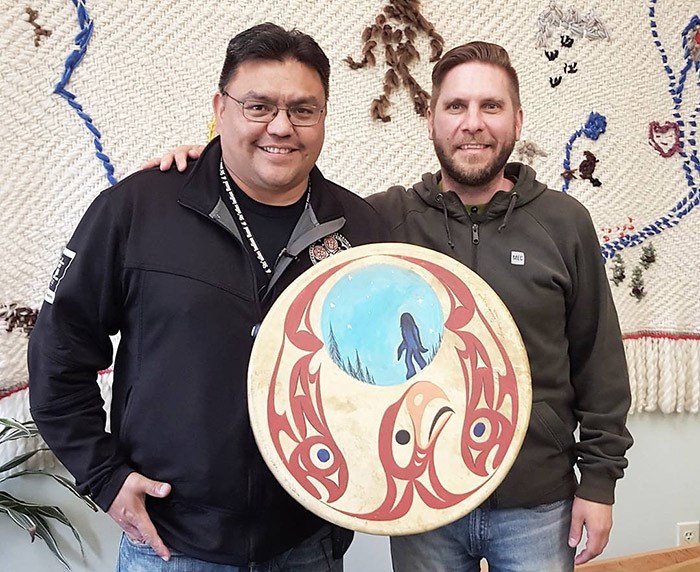It's been a wild few days for the media in Canada, with the issues of white privilege and cultural appropriation being front and centre. If you're just now being made aware of it, the short story is that last week a white magazine editor (who doesn't believe cultural appropriation exists) resigned after writing an editorial about how an "Appropriation Prize" should be awarded to an author who appropriates from a culture which is not their own. To make matters worse, it was published in an issue of Write Magazine that was supposed to be dedicated to amplifying indigenous voices. Subsequently a bunch of white media executives and editors piled on via Twitter, offering money and support to make the prize an actual thing, complete with a lavish ceremony. It went beyond insensitive and into some dark territory, and it prompted some critics to say that "the hoods are off now" for the people who participated. Yikes.
Here's a list of the Canadian media orgs and journalists giving their own money to support a "Cultural Appropriation Prize". Please share. pic.twitter.com/6eP6M1GwNW
— Jarrett Martineau (@culturite) May 12, 2017
The fiasco has so far resulted in two men leaving their jobs - Hal Niedzviecki wrote that Write editorial and resigned, and Jonathan Kay from The Walrus threw gas on the fire in his defence, then resigned. And it's far from being over. While folks like the CBC's Steve Ladurantaye issued apologies and deleted their previous gleeful tweets in support of this ghastly prize, I imagine that more heads are going to roll. HERE is a timeline from J-Source on what's happened so far.
Now if there's one good thing that's come of the #AppropriationPrize mess it's that a national conversation around an issue that clearly needs to be held is now happening. This conversation has been happening at Vancouver Is Awesome for some time; while we did do a series of articles about Reconciliation Week a few years back we also were dumb enough to appropriate a totem pole for our logo, which we used for years. Last year we took the totem pole off after some people reached out to let us know that they were rightfully pissed about it. We're still learning from our mistakes, every day.
I decided to write about this issue not to claim some sort of moral superiority for not being one of the people caught up in it, but to share the insight that from my own flubs I have learned that working with First Nations to tell their stories is the only way it can and should be done. And it is so worth the effort.
For our BC Was Awesome history TV show which I host, we have a policy in place where we won't do a segment that touches on a First Nations subject unless we can get their blessing and feature someone from the band to speak with us. The process of getting approval and an interview isn't one we're used to as it involves many conversations, in-person visits, and not much email. It's frustrating in some ways and refreshing in others.
 Kelsey Charlie of the Sts’ailes Band with Bob Kronbauer
Kelsey Charlie of the Sts’ailes Band with Bob Kronbauer
One of the ten segments we did for Season 1 involved a First Nations story. It was on the legend of Sasquatch and how it came to be, and after much back and forth we locked in with Kelsey Charlie from the Sts'ailes First Nation and he and I sat down for a super long on-camera conversation, which we included some of in our 5 minute long piece. At the 3:50 mark in it (below) you'll see my genuine surprise when he tells me he's seen one. Prior to this point Kelsey had told my producers that he might have heard a Sasquatch once, and as we were being introduced and getting mic'd up for the interview he told me the same thing. However an hour into our conversation I had gained his trust and he opened up and shared the most incredible personal experience that he had (please watch the entire thing below). He also shared the real story of the Sasquatch and its importance to the Sts'ailes people.
In our upcoming Season 2 we have two segments out of twelve that involve First Nations stories. One is on the Ogopogo of Okanagan Lake. We got a representative from the Westbank First Nation to join us in my boat to tell us about it, and we also talked to a white author who has written books on the subject. The second is the story of the Fernie Ghost Rider "curse", and the Ktunaxa people had us in to their Government building in Cranbrook to share their insights on it, which will be accompanied by a separate interview we did with the white curator of the Fernie Museum. We were working on a third story which involved months of research and talking with a band but at the very last moment - right before we were about to book flights for our crew of 5 - it fell through for reasons we are still trying to piece together. Initially it felt like a waste of time, but reflecting on it now it's simply a part of the learning process and accepting that "getting to Yes" doesn't always happen at the snap of someone's fingers.
Reconciliation is meant to "revitalize the relationships among Indigenous peoples and all Canadians", and with some of the segments of our show we're trying to do a small part in realizing that. As a white media executive and TV host I'm personally building up trust with more and more bands so that in the future I can use my platforms to help tell more of their stories, with their permission and participation. For me, I see working together as the best possible answer.


